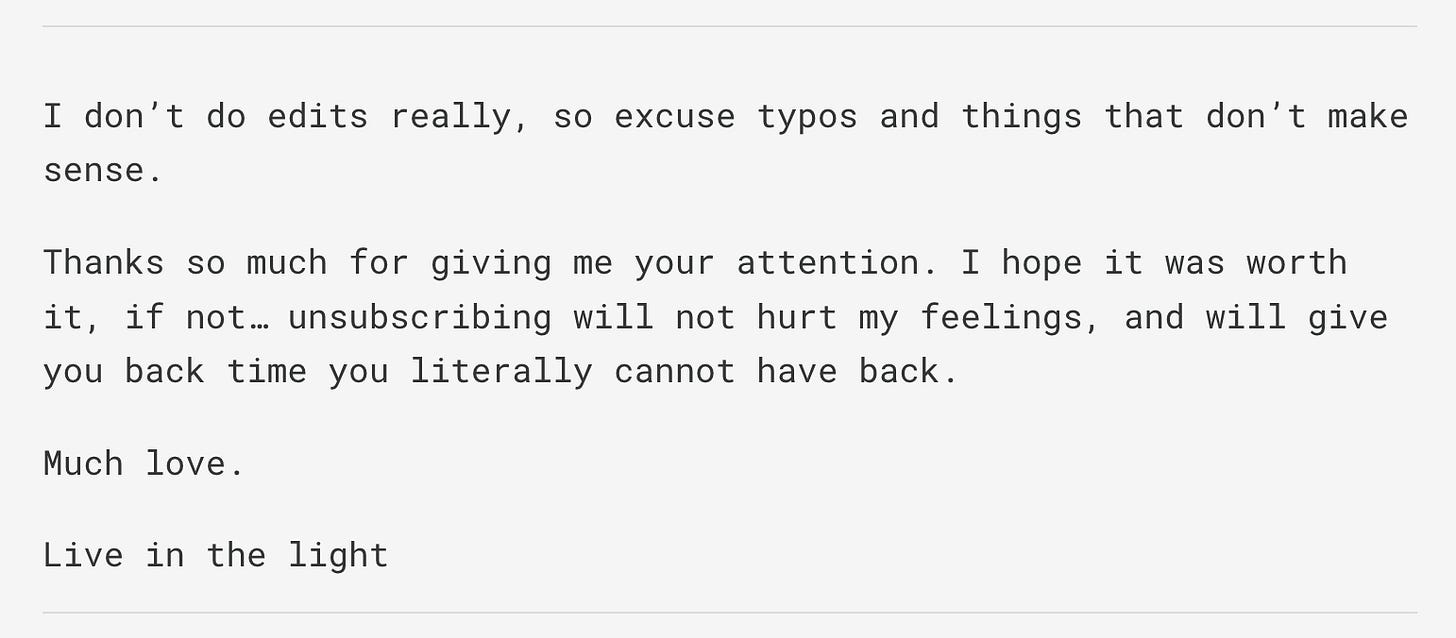Life lessons after one year at Rostra
Today marks one year at Rostra, where I’ve had the incredible privilege of working alongside Lulu Meservey to help some of the most consequential companies of our time tell their stories.
Before joining Rostra, I spent the first few years of my career in early-stage venture capital, hanging out on the internet and writing about the things I learned along the way. Writing was a tool to force clarity of thought, and it often opened the door for me to meet founders in emerging categories.
Over that same period, narrative and storytelling began to emerge as one of the most important areas for investment by founders. The information environment changed dramatically, and it’s unrecognizable now compared to just a few years ago.1 The concept of going direct was fringe last year; today, it’s table stakes.
By a stroke of luck, good timing, and a well-written cold application, I found myself at the center of this shift last year, with zero comms experience and a dream. Since then, Lulu’s taught me a lifetime of invaluable lessons about comms,2 but recently, I’ve found myself reflecting on how many of those lessons can also be applied much more broadly. Comms, as it turns out, is a lot like life.
Here are a few of those life lessons after one year at Rostra:
Your words create your reality
And God said, “Let there be light,” and there was light. God saw that the light was good, and he separated the light from the darkness. God called the light “day,” and the darkness he called “night.” – Genesis 1:1
On the first day of creation, the first thing God did after separating light from darkness was give them names.
Your words shape not only how you see the world, but also how other people see it and position you within it. Narrative is your shortest path to bending reality.
For as much as we joke about technology CEOs trying to build God, they’ve actually done a good job of getting this right. Great leaders know to place themselves at the center of an important thesis or problem, such that they have a gravitational pull for talent, customers, and investors. Consider how Coinbase’s mission statement is not to help you trade internet money, but to increase economic freedom in the world. I’m sure there are plenty of people at Coinbase who specifically want to work on building excellent crypto products, but I’d bet there are just as many who care even more about economic freedom and working under the leadership of a founder on that mission.
In life, language is similarly the tool to help you construct meaning from experience. What you think is what you say, which is what you do, which is who you are.
Hedge and you’ll miss it
For many of the companies we work with, talent is often the top operating priority, making recruiting one of the main areas we direct our efforts with comms.
One thing I’ve learned from crafting messages to reach recruits is that great talent doesn’t want to work for a middling company. People are inspired by missions both important and difficult. It’s not enough to shoot for the moon anymore; you could be working on getting to Mars.
Part of this is because technology has enabled exponentially larger outcomes. Things that would take months last year can now be done in a weekend. You can have a billion-dollar company with a ten-person team.
But I also think this technology acceleration has made us more acutely aware of how quickly time passes. At some point you were closer to the last time than you were to the first time, and you didn’t even know it.
I love the way my friend Reggie James closes his Substack posts:
In companies and in life, you have to be giving your maximum effort toward the things you care about. There’s actually no time to be doing anything less.
Take care of your own house first
One of my favorite lessons from Lulu is that you can get a good pulse on the culture of a company by how much of their sensitive information gets leaked to the press.
Strong companies cultivate a culture of internal trust and discretion, where employees learn about major decisions from leadership first. If that breaks, and employees start learning about company updates or problems from reporters instead of their own team, it teaches them that the media is more reliable than their employer for getting the truth. This creates a dangerous cycle where more people feel justified taking sensitive information outside the company.
Companies fracture internally far before they do externally, and leaks are often the first visible sign of that breakdown. The implication here is that internal comms is much more important than external comms, especially because the ability to retain talent is existential.
In life, the lesson is the same. Relationships are built on trust. Gossiping is usually a sign of insecurity, and the status afforded by spreading secrets is inherently short-term.
Relationships might be breaking down internally far before you would ever know. Take care of your own house and your own people by honoring their trust; it will pay you back in dividends.
It’s the people, stupid
Some closing thoughts.
Working with excellent people and companies up close makes you realize just how large the delta is between good and great. Early in your career, the most important thing you can do is find excellence as quickly as you can and surround yourself with it.
This advice is important because it’s often misunderstood. Many young people feel that joining an elite company is primarily about the brand equity it affords. It’s nice to be associated with greatness by proxy, but that’s not the point. The value is in the exposure to greatness, for the purpose of setting your bar and developing your own skills. Good doesn’t even know what great looks like. Find great people and they will guide you.
Now back to work. Onwards!
Thanks to the wonderful friends who helped me get this post out and have supported me every step of the way.
Companies used to launch on TechCrunch; today, they go live on TBPN.





beyond proud of you!! I love how you've made this role your own and can't wait to see the way you keep shining!
Very well said! Thanks Gaby!